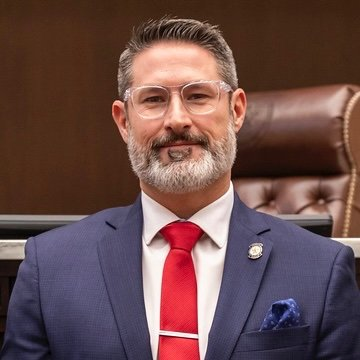The Executive Committee Forgets that the SBC's Headquarters are in Local Churches, not Nashville
On September 22 and 23, in Nashville, TN, SBC Executive Committee (EC) president Jeff Iorg framed the SBC’s giving turbulence as a crisis of “expressive individualism.” He said the Cooperative Program (CP) is now splintering into “33 different alternate ‘Cooperative Program’ configurations” where local churches deliberately omit some entities and fund others.
That trend, he argued, reflects a culture that runs “from ‘obsessive sharing on social media’ to ‘convincing children they can choose their gender,’” which he called “antithetical to cooperation.” His remedy: “recommit to cooperation in all its messy splendor” and “see funding it through one channel—the Cooperative Program—as its natural outflow.”
In other words, be quiet and keep writing us blank checks. Or, even more succinctly: Surrender control.
His broadside against designated giving and responsible financial stewardship was striking on its face. But it gets even worse when you understand his remarks emerge from a specific governance and financial context within the SBC right now. Independent reporting on the EC’s audits reveals multi-million-dollar losses and an auditor’s warning that the liquidity trend was “not sustainable,” with explicit mention of possible asset sales (including real estate) to stabilize cash flow. In fact, the Nashville headquarters has been put up for sale.
And at the 2025 Annual Meeting, messengers voted to defeat a motion for IRS Form-990-level disclosure after Iorg opposed it from the stage with a panoply of misleading and factually incorrect arguments and threats: “Voluntarily offering that kind of information sends a signal that we find ourselves in some way subject to federal government oversight, which none of us want.”
Put plainly, even while leadership trust is low and money is tight, Iorg’s solution is centralized giving with less transparency and accountability.
The Rhetorical Move: Moralizing a Conscience-Driven Disagreement
Iorg did not merely argue that designated giving is sub-optimal; he framed it as moral pathology: expressive individualism.
As Charles Taylor (A Secular Age), Robert Bellah (Habits of the Heart), and Carl Trueman (The Rise and Triumph of the Modern Self) have argued, expressive individualism refers to a genuine modern impulse toward finding identity through self-expression. Iorg has decided to take this term and run with it, grossly misapplying this lens to “designated giving” in an effort to pressure and police institutional loyalty. By yoking it to “obsessive social media” and “convincing children they can choose their gender,” he shifts a prudential stewardship debate into a character indictment of conscience-driven Southern Baptists. Iorg goes beyond Taylor’s description of culture to prescribe conformity.
This is textbook “social influence” rhetoric. Iorg defines dissent as morally corrupt, enforces norms through shame and reputational risk, and then presents routing funds through “one channel and one channel only” as virtuous, so that when conscientious designation is branded morally suspect, conformity realigns. That is not persuasion; it is emotional blackmail. He is raising the reputational cost of conscience and stewardship, so pastors feel they must fund what they cannot trust (cf. 2 Cor 9:7: “not under compulsion”).
The Structural Shift: From Voluntary Cooperation to Enforced Compliance
Baptist polity protects conscience by insisting that churches cooperate voluntarily; conscience controls the purse. At least, that’s how our Baptist forefathers intended the system to work. The Baptist Faith and Message, Article 14, explicitly depicts associations as voluntary and advisory, and Christian unity as “spiritual harmony and voluntary cooperation…with no violation of conscience.”
Iorg’s prescription, “funding it through one channel,” while labeling work-arounds as “expressive individualism,” inverts the logic of associational freedom. It constricts the means of expressing dissent (financial designation) and moralizes compliance, shifting authority from bottom-up consent to a top-down funding mandate. This is survival-driven managerialism. In Max Weber’s analysis of bureaucracy, it reflects a shift from bottom-up consent to top-down command (Economy and Society). It also mirrors James Q. Wilson’s analysis (Bureaucracy), which emphasizes that organizations prioritize stable revenue streams over local discretion.
When “unity” means offshoring your conscience from the local church to Nashville, Baptists are no longer being shepherded; they are being herded. In the short run, this bless-the-one-channel tactic chills pastors, depresses giving, and deepens distrust. In the long run, it hollows Baptist polity, ossifies the bureaucracy, and leaves the SBC brittle as saints quietly take their gifts and their children elsewhere.
If the one channel is really so “holy,” why not let it walk on water: open the books, earn the trust, and the money will find its way. Until then, keep your spine and your checkbooks under Christ, not the manager’s thumb.
Central-Planning & Rejecting Transparency
When a bureaucracy feels the pinch, it reaches for the oldest catechism of central planners: pull every lever to the middle, christen it “unity,” and hang a shame sign over every side door. In Marxist shop-talk, that’s “the common plan” plus “unity of action” of democratic centralism: you may talk before the vote, but afterward you march. Iorg’s version swaps party slogans for piety: one channel is holy, but designation is morally corrupted bourgeois mischief.
The SBC is not a state, and the CP is not Gosplan (the Soviet Union’s State Planning Committee), but the family resemblance is hard to miss. Iorg wants to centralize the purse, stigmatize conscientious objectors, and canonize conformity. It is the denominational riff on seizing the commanding heights of finance, blessing the single spigot, and calling every bypass a moral leak. And when dissent is rebranded as a moral defect, central planning gets teeth without passing a single bylaw.
Then comes the blackout. Control loves dim rooms. The defeat of 990-level disclosures in 2025, paired with Iorg’s on-record opposition, effectively says “trust the center, do not designate around it, and do not ask for the public detail most large nonprofits provide.” In a low-trust moment, consolidation plus opacity will always equal suspicion, not unity. It is hard to kick against the goads. Baptists won’t give to what they won’t trust, no matter how much the central planners hector them.
This lamentable approach also removes the straightest path back to confidence: routine, industry-standard, open financials that allow churches to verify stewardship without guesswork.
What Is the (Proper) Baptist Way?
If voluntary cooperation is the Baptist norm, concerns should be met with persuasion rather than shame. The path is straightforward:
- Publish entity-level quarterly dashboards (cash on hand, liabilities, legal spend, audit exceptions).
- Acknowledge the EC auditor’s warnings and show corrective actions with timelines and measurable checkpoints.
- Adopt a 990-equivalent public report (or publish the relevant schedules) within 12 months.
- Attach a 12–18-month sunset review to any emergency centralization policy.
- Invite designated givers back with transparent receipts, not ad hominem labels.
A Baptist response need not be cynical. It just has to be Baptist: voluntary cooperation, conscience-honoring giving, and transparent stewardship. If one channel is truly best, prove it with receipts, reforms, and results that churches can see, test, and gladly support (2 Cor 9:7; 2 Cor 8:20–21).
In other words, rebuild trust before you require trust. This is precisely the logic embedded in the BF&M’s language on voluntary cooperation and conscience (cf. Rom 14:5; Eph 4:3).
How have our leaders forgotten this? Perhaps because they have forgotten that the heart, and the headquarters, of the SBC is in the thousands of local churches across the nation, and not committee rooms in Nashville, TN.
Share This Story

